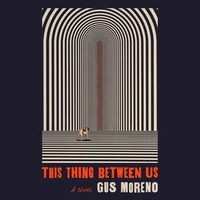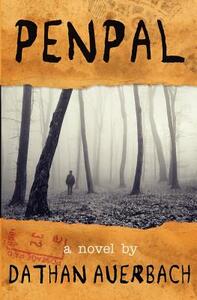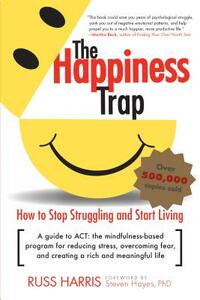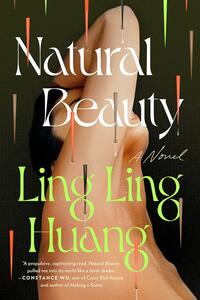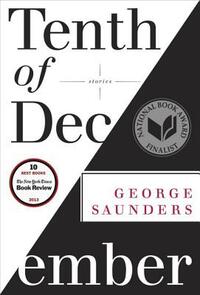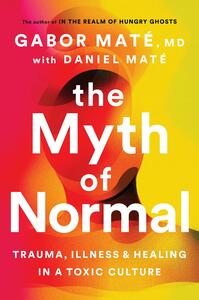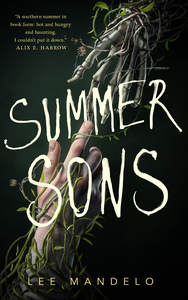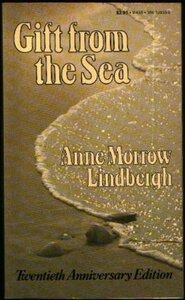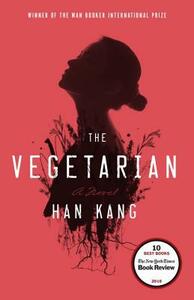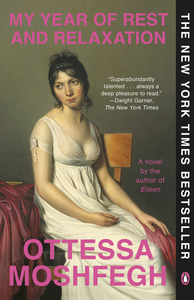You need to sign in or sign up before continuing.
Take a photo of a barcode or cover
thebigemmt505's Reviews (36)
This Thing Between Us is a story about grief above all, particularly the grief felt after a sudden, and politicized death.
There are various factors that make me struggle to review this book. First of all, it was my first audiobook, because that was all that was available at my library. It’s certainly a different experience than sitting down to read something, and while not unpleasant, I found myself distracted a little more easily, which makes me hesitate to be critical given I might’ve missed a few important details. Second of all, this novel is… strange to say the least. The premise is very interesting, a mix of the despair of grief, a bizarre mystery, and a sort of gory, cosmic horror. Generally, I enjoyed the writing and narration, and many passages left a mark on me:
“No journey. No thing to endure. It feels like a corruption of genes, a double helix scrambled in a petri dish, a puppet forced to work on crossed strings, this trees that manage to grow around power lines and stay mangled forever.”
I think my favorite scene was the one with the cook, though I really don’t understand where this went, or what this character ultimately meant. In general, that’s how I feel about this story: so many interesting, well executed elements that fell flat for me in the end, and also felt quite jumbled and confusing. Sometimes the tone of the writing shifted dramatically too, and it was jarring. Usually my reviews or more structured, but really, I don’t have too much left to say. I think that grief-horror is just not my genre, either. I went in blind and came out happy I read it, but a bit let down overall.
Also, if you read this, don’t rely on the blurb about this plot: to be honest, it feels very out of touch with what the book actually is. Go in blind or expecting anything.
Honestly, my real review is this: “too many cooks! too many cooks… too many cooks! TO MANY COOOOOKKKKS”
Graphic: Animal death, Body horror, Death, Gore, Violence, Grief, Injury/Injury detail
Moderate: Suicide, Medical content
God, fuck this story though. Brutal.
The Happiness Trap is a book about Acceptance and Commitment Therapy (ACT), a third wave psychotherapy that focuses on interrupting thought and behavior patterns with mindfulness strategies.
This book is annoying, though I don’t say this in a bad way. I think the practices proposed in this book, if actually employed, will give many people that embarrassed feeling of “damn, it does kind of work,” that you get from other “common sense” though often difficult to do self care practices, such as healthy(ier) eating, exercise, or fresh air and sunshine. Many of us get lost in our worst moments, our rock-bottoms, and forget that when it comes to daily struggles, those mindfulness tools we often find frustrating at our lowest can be extremely helpful. In that sense, I applaud this book for quite relentlessly encouraging the reader to practice certain exercises while reading, and making it difficult to continue without doing so. In addition, most of the practices are very grounded and helpful; I can’t imagine someone reading this book in good faith and coming away with absolutely nothing. Russ Harris explains his therapeutic methods concisely and compassionately, giving the reader a lot of information that’s easy to digest. Overall, I found the book easy to understand, the exercises easy to remember, and the basis of ACT overall helpful. He encourages the reader to try everything many times, see what works, leave what doesn’t, and to accept and make room for those times nothing is working. He promises nothing though suggests everything in terms of benefits, which is nice in comparison to other self-help gurus or therapists who sell the “gold standard” “full-proof” path to a “perfect” life. I think, in summary, the book is digestible, helpful, and a nice read.
I have a few criticisms, though, as always. Here’s the semi-pedantic part: parts of this therapy are mal-equipped to help neurodivergent people especially. I don’t envision certain exercises being sensory friendly, and given neurodivergent stimming behaviors, there might be a need to greatly adapt these exercises in order for them to be helpful. Though it is explored a tiny bit in the beginning, there needs to be more room for people genuinely suffering from severely traumatic, extreme or even dangerous life circumstances. I unfortunately do not envision this type of therapy reaching people, like me, in severe self harm or suicidal crises. Unfortunately, many therapies do not take into account the sheer exhaustion and disillusionment some of us feel towards life. I think there could have been more to empathize with those people, more to offer outside of the bounds of ACT, given this is a therapy self-help book meant for a wide audience. I just would’ve liked to see some adaptations or suggestions for the marginalized. I also didn’t like the implication that those with the highest will to live will survive, not a fan of that.
In addition, I really wish more of the mentioned research was cited; without citation, I found myself doubting some of the claims. This is especially due to the fact that in general, the field of psychology has a huge reproducibility problem. It’s also already hard to trust research for those of us deeply failed by the mental health system.
Okay, enough of that. I tend to have those issues with these books, and I do understand my inclusivity critiques can be a bit nit-picky. In its entirety, The Happiness Trap is a good book. I was helped by it and I’ll be curious how it might continue to help me in the future. The parts of the book about values I found especially helpful, given I am very driven by values, though can be easily taken from them during mood swings and life struggles.
I do recommend, though go into it with a bit of a skeptical eye. Nice book!
“Life gives most to those who make the most of what life gives.”
Minor: Addiction, Alcoholism, Cancer, Child abuse, Fatphobia, Mental illness, Panic attacks/disorders, Physical abuse, Grief
Natural Beauty is a unique novel following a young pianist with immigrant parents, now chronically ill after a car crash, who gets caught up in the world of holistic health and wellness.
I liked this one a lot, though something prevented me from loving it. I do love the foreshadowing and themes in this book. It feels as though every detail is purposeful, and wraps the whole story up in a bow
I really like the themes. Beauty standards, race, lineage, taking advantage of women, and all of the things people will do to fit in. It all felt a tiny bit obvious at points, though I don’t think it needed to be more subtle either. It’s a book I definitely enjoyed in its subject, and it was fun for me as someone who has always been fascinated by health and wellness (from the genuine ways to take care of one’s body to the super crazy scams) to laugh at how ludicrous some products and treatments were. There was realism in that. Perhaps Gwyneth Paltrow is the irl Victor (only 3/4 kidding.)
So, mixed feelings here. I need to let it sit for a while. If Ling Ling Huang releases more books, I’ll certainly given them a read!
It’s a self-centered comparison, but this book reminds me slightly of the first “novel” (obviously unpublished) that I wrote. I dunno how to feel about that. Weird feeling to get reading something.
“I enjoy the immense freedom that comes with being safe from desire. And it is a kind of power to embrace ugliness and its possibility of expression, so much more imaginative than beauty.”
Graphic: Body horror, Death, Gore, Sexual content, Violence, Death of parent, Fire/Fire injury
Moderate: Chronic illness, Grief
Minor: Racism, Sexism, Terminal illness, Xenophobia, Car accident
You’re briefly unlimited.”
Wow, wow, wow. I’ve had this collection on my list for a while, and I’ll with some embarrassment admit… I was pushed by the NYT list coming out. I had no idea I would like it this much.
I’ve never been pulled to read short story collections, because I’m more drawn to books with overarching themes and well-developed characters, but George Saunders is able to create such vivid characters with their own unique perspectives in such a short amount of time, and the themes of each of these stories are beautifully intertwined. What I appreciate the most is that the reader is not treated as if they are stupid- Saunders throws you into a plot, lets you be a bit confused at first, then slowly each bit of context winds together into such a deep, coherent story. It’s a book that actually feels rewarding to read, which is something I feel is rarer and rarer these days. It’s definitely my cup of tea, because the stories and themes are dark, but are always sprinkled in a little optimism and dark humor. It’s a collection about societal issues, social norms, trauma, the interconnectedness of all humans, and most of all, love in all its forms.
“We left home, married, had children of our own, found the seeds of meanness blooming also within us.”
My favorite stories are probably Escape From Spiderhead and The Semplica Girl Diaries. I could write so much about these two in particular, and perhaps one day I will, but just… man. So tragic but so full of love and empathy.
I don’t have many critiques as it currently stands. Perhaps the narratives are a bit too difficult at points, and the abrupt perspective changes interrupt the reading “flow” sometimes, but overall… a fantastic read. I’ll remember this one for a while.
READ. IT. NOW.
“Empty rack out in yard, looking strange in moonlight.
Note to self: call Greenway, have them take ugly thing away.”
Moderate: Cancer, Child abuse, Rape, Slavery, Terminal illness, Medical content, Kidnapping, Suicide attempt
Minor: Bullying, Cursing, Classism
Minor: Addiction, Alcoholism, Cancer, Child abuse, Chronic illness, Confinement, Death, Genocide, Mental illness, Miscarriage, Misogyny, Racism, Sexual assault, Suicidal thoughts, Antisemitism, Medical trauma, Suicide attempt, Classism, Pandemic/Epidemic
Graphic: Body horror, Cursing, Death, Gore, Toxic relationship, Violence, Blood, Grief, Toxic friendship, Injury/Injury detail
Moderate: Drug use, Homophobia, Misogyny, Murder, Alcohol, Classism
The Vegetarian is a book I’ve struggled to gather my thoughts on. It’s the story of a young woman named Yeong-hye, whose life is told from every perspective but her own. While she says her transition to vegetarianism (well, veganism really) followed a dream she had, the audience can deduce it is so much more than that. Yeong-hyes life is rife with abuse, abuse she clearly refuses to inflict herself. She’s weak, struggling under patriarchy and strict social norms, and her only defiance seems to be shrinking herself, shedding all that makes her human and returning to a pure, natural state. We learn through the men that use and abuse her, being her husband, her sisters husband, and briefly her father, that no matter what perception others have of her, the result of her vulnerability will be the same: abuse. Through her sister, In-hye, we see a more direct reckoning with the past they shared, and by the end both she and the audience may wonder what absurdity keeps them going. It’s bittersweet.
My small interpretation is all I can glean from this book. There’s likely a lot that I missed, though I may argue the metaphors were a bit too vague to fully grasp. Granted, I get the impression a lot was lost in translation, because there were many parts that felt clunky and strangely written. Still, there were beautiful passages, especially in the last part, though I thought the sentiments were repetitive after a point. I found the end disappointing and abrupt. I appreciated the authors capacity to write despicable characters, though it felt hard to attach oneself to any character at all. I found some of the choices the characters made confusing. At the very least, the pacing was good, the writing was generally good too, and I don’t feel I wasted my time. I just didn’t connect to it much.
In summary, it’s an odd little book. Worth a read, though it will likely be a let down to many. I still mostly enjoyed it though.
Graphic: Eating disorder, Misogyny, Rape, Sexual assault, Sexual content, Sexual violence, Forced institutionalization
Moderate: Self harm, Suicide attempt
Minor: Animal cruelty
My Year of Rest and Relaxation explores what happens when privilege and vanity meet trauma and despair. It follows our main character as she embarks on a mission to fall asleep for a full year, and slowly descends into drug abuse and desperation.
I found this book strangely comforting. I feel I’ve rated it too highly, because the whole time I questioned “why am I enjoying this?” The characters are deeply vain and unlikable, especially the main character. The most likeable character is Reva, and it takes quite awhile for her to be so. Granted, the hateability of the main character is mitigated slightly as we learn more about her, but in the end it’s quite difficult to say if she’s actually grown. Perhaps my enjoyment comes mostly from the beautiful, highly descriptive writing. Admittedly, I found the constant, excessive reliance on pop culture references annoying, but at the very least the rest of the description was usually good enough to make up for what one might not catch in terms of references. The books pacing was alright, minus some parts that dragged a bit (such as the funeral part of the book.) I like the way this author tells a unique story with unique characters, sprinkling in dark humor to the many heavy themes.
I think this book caught me at the right time. My current reality is that I’m burnt out and jaded, a teeny bit too judgmental, eternally annoyed with most things, and more and more frustrated with the world around me and with myself every day. I’m perturbed by the development of this bitterness within me. As I read the book, much as I thought the main character was cruel and superficial, I related to her pain and her desires. I want to rot in my depression and sleep a year away. Obviously, I don’t have the endless money and ressources nor the true will to do that, but the appeal is there. And, if anything, I feel the ending shows us both how much and how little the character changed. She sees beauty in the world now,
Anyways, one thing I do find ironic is that this novel has become part of an aesthetic associated with modern “weird” readers, and the existence of such an aesthetic, in my opinion, really strips art of its uniqueness, all to fit into one’s personal style. In other words, it’s superficial and meaningless, vain, even. I find that pretty funny. I’m being pretentious. Welp, there’s my cynical bitterness. I think it does have a point sometimes, though. Aesthetics can be fun but… oh, the irony.
I’ll stop my rambly introspection. Give My Year of Rest and Relaxation a read; be aware though, to many audiences it’ll be quite boring and unappealing (and understandably so.) I (think) that I loved it though.
Graphic: Addiction, Death, Drug abuse, Drug use, Eating disorder, Death of parent, Toxic friendship
Moderate: Alcoholism, Body shaming, Fatphobia
Minor: Abortion
